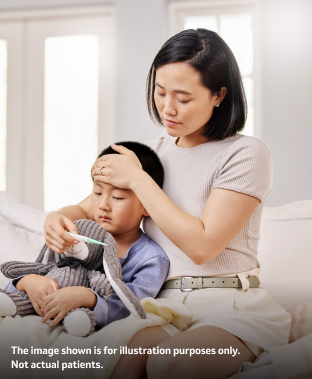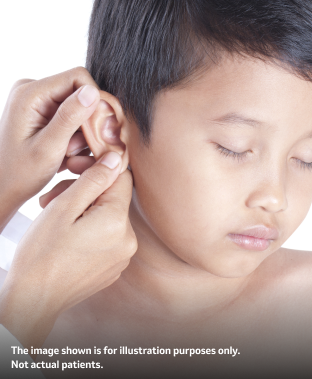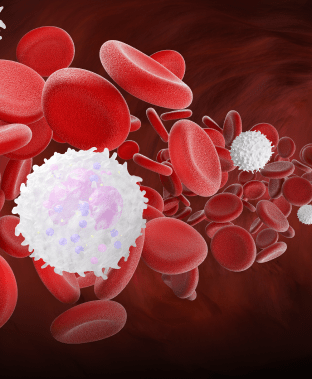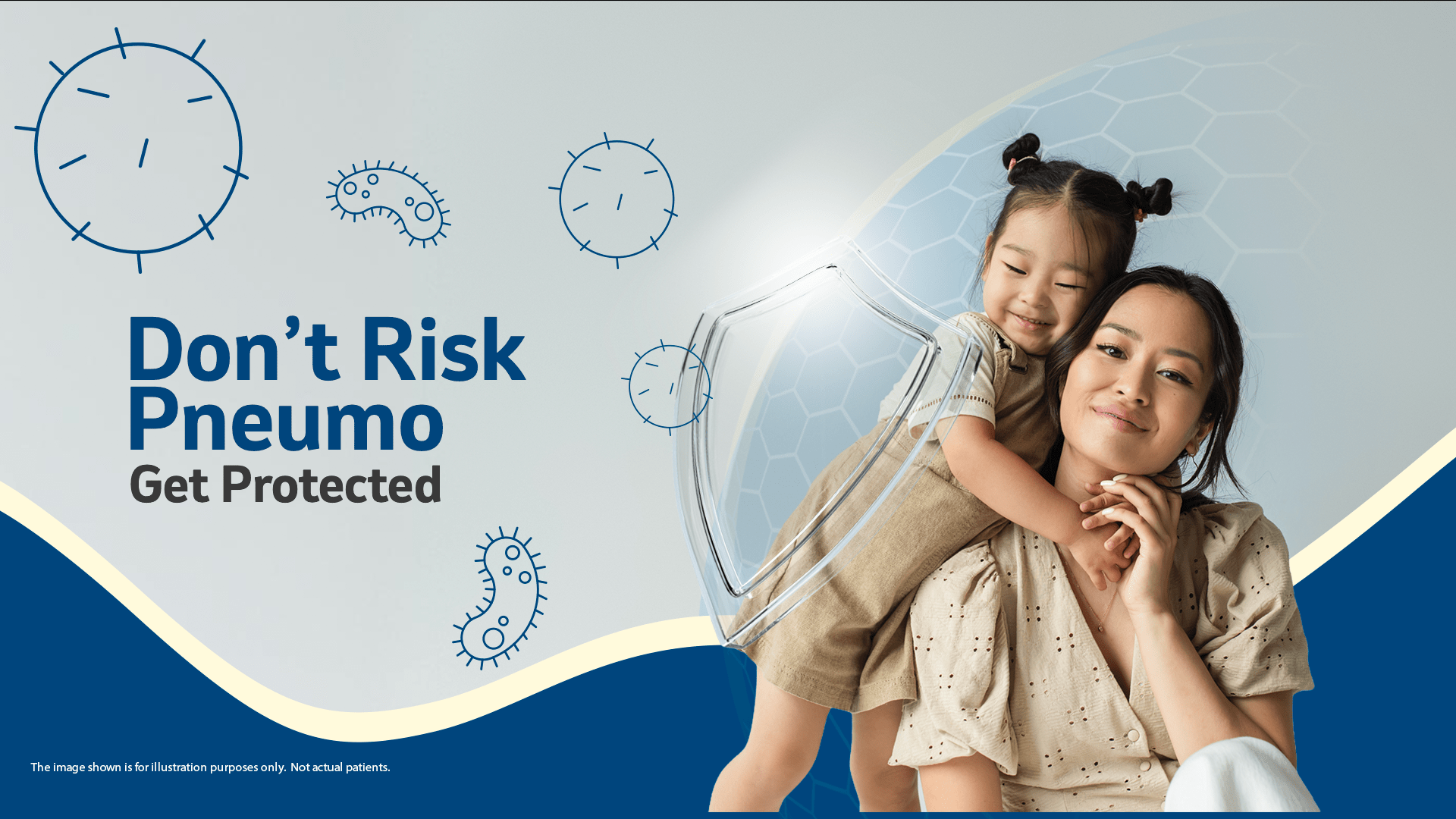
WHAT IS IT
Pneumococcal [noo-muh-KOK-uhl] disease is a name for any infection caused by bacteria called Streptococcus pneumoniae, or pneumococcus1. Pneumococcal infections can range from ear and sinus infections to pneumococcal pneumonia and invasive pneumococcal disease (meningitis and bacteremia)2,3.

QUICK FACTS
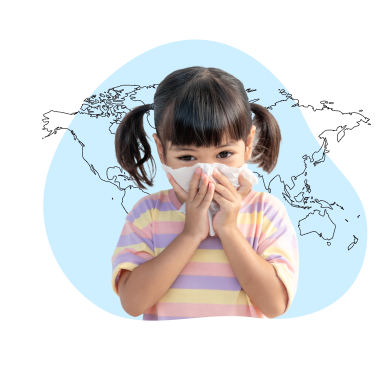
In 2015, 294,000 deaths among children <5 years of age were estimated to be caused by pneumococcal infections3, with Streptococcus pneumoniae estimated to be responsible for more than 300,000 deaths every year4.

Pneumonia is ranked as the 2nd leading cause of death in Malaysia in 20225.

Serious infections can result in sepsis, hearing loss, brain damage or death. Sepsis is a life-threatening emergency resulting from the body’s extreme response to the infection6.
WHO ARE AT RISK

- Children younger than 5 years old and older adults ≥ 65 years old are particularly vulnerable to Pneumococcal Disease7.
- 1 in 4 of pediatric cases of IPD in US are caused by serotype 3, 22F and 33F8.

- Adults ≥ 65 years are ~3x more at risk for Invasive Pneumococcal Disease compared to healthy persons9.
- Adults with pre-existing medical conditions and immunocompromising conditions are more at risk for IPD10.

- Adults (aged 18-64 years old) with asthma are ~4x more at risk9.
- Adults (aged 18-64 years old) with diabetes mellitus are ~4x more at risk9.
- Adults (aged 18-64 years old) with chronic heart disease are 4x more at risk9.

- Adults (aged 18-64 years old) who smoke are ~5x more at risk9.
- Adults (aged 18-64 years old) with chronic lung disease are 10x more at risk9.

- Adults (aged 18-64 years old) living with HIV are 17x more at risk9.
- Adults (aged 18-64 years old) with increased alcohol consumption are ~8x more at risk9.
- Adults (aged 18-64 years old) with chronic liver disease are 9x more at risk9.

- Adults (aged 18-64 years old) with other immunocompromising conditions are 9x more at risk9.
- People going to religious pilgrimage such as hajj or umrah10.
HOW DOES IT SPREAD
Streptococcus pneumoniae bacteria are usually spread through droplets of saliva or mucus when they cough and sneeze11.
Respiratory droplets
Close contact with an infected person, such as sharing toys, kissing, or being in close proximity12.
Direct contact
Many people, especially children, can carry Streptococcus pneumoniae bacteria in their noses and throats even if they don’t have symptoms11.
Carriers
SIGNS AND SYMPTOMS
WHAT CAN YOU DO

Getting vaccinated is one of the ways to reduce your risk of developing pneumococcal disease12.

Stop Smoking15,16
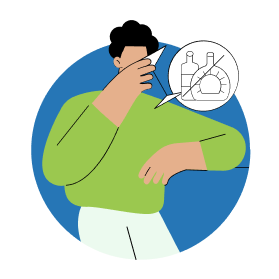
Avoid excessive alcohol
consumption17
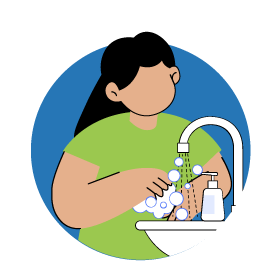
Practice good hygiene15,18

Eat healthily15
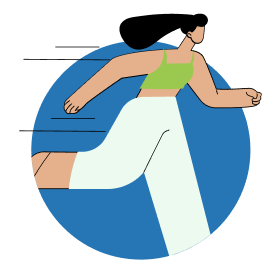
Exercise regularly15

Take Action Now
It is beneficial to stay informed about the symptoms associated with pneumococcal disease and to follow general recommendations for maintaining good health, which can help reduce the risk of its spread. Taking proactive measures to help protect yourself and your child from serious health complications associated with pneumococcal diseases is important. In case of any concerns, seeking prompt medical advice is advisable.
References
- Centers of Disease Control (CDC). About Pneumococcal. Available at: https://www.cdc.gov/pneumococcal/about/index.html Last Accessed on 17th July 2024.
- Cillóniz C, Amaro R, Torres A. Pneumococcal vaccination. Current Opinion in Infectious Diseases. 2016 Apr 1;29(2):187-96.
- WHO, Pneumococcal conjugate vaccines in infants and children under 5 years of age: WHO position paper – Feb 2019, pg 85-104.
- Centers of Disease Control (CDC). Pneumococcal Disease Surveillance and Trends. Available at: https://www.cdc.gov/pneumococcal/php/surveillance/ Last Accessed on 17th July 2024.
- Department of Statistic Malaysia (DOSM). Statistics on Causes of Death, Malaysia, 2023. Available at: https://www.dosm.gov.my/uploads/release-content/file_20231030100000.pdf Last Accessed on 17th July 2024.
- Centers of Disease Control (CDC). Pneumococcal Disease Symptoms and Complications. Available at: https://www.cdc.gov/pneumococcal/signs-symptoms/index.html Last Accessed on 17th July 2024.
- Centers of Disease Control (CDC). Pneumococcal Disease: Causes and How It Spreads. Available at: https://www.cdc.gov/pneumococcal/causes/index.html Last Accessed on 17th July 2024.
- Saddier P. Top Three and Top Five Pneumococcal Serotypes Causing Invasive Pneumococcal Disease in Children Under 5 Years of Age, United States, 2018–2019. June 2022.
- Weycker D et al. BMC Health Services Research. 2016; 16:182.
- Malaysian Society of Infectious Diseases and Chemotherapy (2023). Guidelines for Adult Immunisation. Available at: https://adultimmunisation.msidc.my/pneumococcal/ Last Accessed on 8th February 2024.
- Cleveland Clinic. Pneumococcal Disease. Available at: https://my.clevelandclinic.org/health/diseases/24231-pneumococcal-disease Last Accessed on 17th July 2024.
- Better Health Channel. Pneumococcal Disease. Available at: https://www.betterhealth.vic.gov.au/health/conditionsandtreatments/pneumococcal-disease#spread-of-pneumococcal-disease Last Accessed on 17th July 2024.
- Centers of Disease Control (CDC). Pneumococcal Disease Symptoms and Complications. Available at: https://www.cdc.gov/pneumococcal/signs-symptoms/index.html Last Accessed on 17th July 2024.
- Thadchanamoorthy, V., & Dayasiri, K. Review on Pneumococcal Infection in Children. Cureus, 2021; 13(5), e14913.
- National Heart, Lung, and Blood Institute (NLHBI). Pneumonia Prevention. Available at: https://www.nhlbi.nih.gov/health/pneumonia/prevention Last Accessed on 17th July 2024.
- Diabetes Australia. Pneumococcal Disease & Diabetes. Available at: https://www.diabetesaustralia.com.au/managing-diabetes/pneumococcal-disease/ Last Accessed on 17th July 2024.
- Cruickshank, H. C. et al. Lifestyle risk factors for invasive pneumococcal disease: a systematic review. BMJ open, 2024; 4(6), e005224.
- Immunisation Advisory Centre. Pneumococcal Disease. Available at: https://www.immune.org.nz/factsheets/pneumococcal-disease Last Accessed on 17th July 2024.
MY-PVC-00090 Jul/2024

